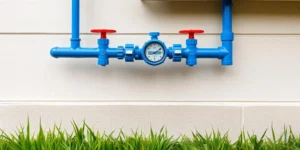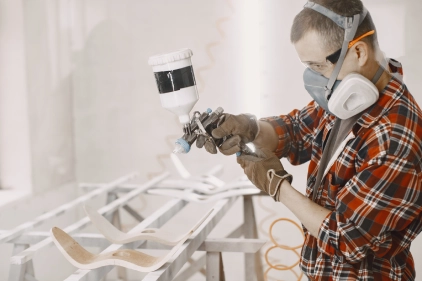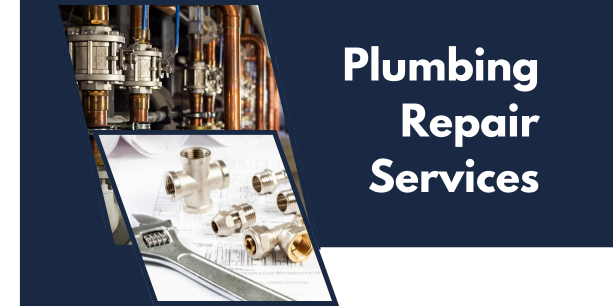 Top 5 Plumbing Disasters
Top 5 Plumbing Disasters
You Should Avoid This Winter
Winter can be tough on homes, especially when plumbing disasters strike. Frozen pipes, water heater problems, and other issues can lead to expensive repairs and stress. However, with a little planning, most of these problems can be avoided.
Let’s dive into the top five winter plumbing disasters, why they occur, and simple steps to prevent them.
1. Frozen Pipes
When water freezes inside pipes, it expands and can cause them to burst, leading to costly damage. Pipes in unheated areas or with poor insulation are most at risk.
Prevention Tips:
- Insulate exposed pipes, especially in unheated spaces.
- Allow faucets to drip to keep water moving.
- Maintain indoor temperatures above 55°F, even when away.
- Open cabinet doors under sinks to allow warm air to circulate.
2. Water Heater Failure
Cold weather puts extra strain on water heaters, which can lead to breakdowns if not maintained.
Protect Your Water Heater:
- Flush the tank annually to remove sediment buildup.
- Insulate the tank to improve efficiency.
- Ensure the thermostat is set between 120°F and 140°F.
- Schedule a professional inspection to catch potential issues early.
3. Clogged Drains
Holiday cooking and gatherings can overload your drains with grease, food scraps, and debris, leading to clogs.
Avoid Clogs:
- Dispose of grease and oil in the trash instead of the sink.
- Use drain strainers to catch debris.
- Clean drains regularly with a mix of baking soda and vinegar.
- Avoid overloading the garbage disposal and grinding fibrous foods.
4. Sump Pump Problems
Cold weather can freeze sump pump discharge lines or overload the pump during heavy rain or snowmelt.
Keep Your Sump Pump Running:
- Check and clear the discharge line regularly.
- Insulate or bury the discharge line to prevent freezing.
- Clean the sump pit to remove debris.
- Test the pump by pouring water into the pit to ensure it activates.
5. Outdoor Plumbing Disasters Issues
Outdoor faucets, hoses, and sprinkler systems can freeze and crack if not properly winterized.
Winterize Outdoor Plumbing Disasters:
Prepare your home to avoid outdoor plumbing disasters this winter by taking simple preventative measures.
- Disconnect and drain garden hoses.
- Shut off water supply to outdoor faucets and drain them.
- Use faucet covers for added insulation.
- Blow out sprinkler lines to remove water.

Emergency Steps
Despite precautions, emergencies can still happen. If disaster strikes:
- Shut off the main water valve immediately.
- Call a licensed plumber to assess and fix the problem.
- Use towels or a wet/dry vacuum to minimize water damage.
Bonus Tips
- Inspect plumbing for leaks or cracks regularly.
- Seal drafts near pipes with caulk or weather stripping.
- Save the contact information of a reliable plumber for emergencies.
Conclusion
Winter doesn’t have to mean plumbing disasters! With a little preparation, you can avoid the stress and expense of frozen pipes, clogged drains, or a failing water heater. Taking simple steps now—like insulating pipes, flushing your water heater, and winterizing outdoor plumbing—can save you time, money, and headaches later.
If you’re unsure where to start or need professional help, don’t wait until it’s too late. A trusted plumber can make sure your home is ready to handle the winter chill.
Call to Action
Stay ahead of winter plumbing disasters! Contact us today to schedule plumbing disasters solution or get expert advice on how to winterize your home. Let’s make this winter worry-free together!
Stay warm, stay safe, and enjoy a worry-free winter!
FAQs
- What are the early warning signs of plumbing disasters issues during winter?
- Answer: Early signs include reduced water pressure, unusual noises from pipes (like banging or whistling), slow drains, discolored water, or persistent dampness around walls or floors. Addressing these signs early can prevent larger issues.
- Why is my water heater making loud noises in winter?
- Answer: Loud noises, such as banging or rumbling, are often caused by sediment buildup at the bottom of the tank. This buildup traps water beneath, which boils and creates noise. Flushing the tank annually can help resolve this issue.
- How do I prevent ice from forming in my sump pump discharge line?
- Answer: To prevent freezing, insulate the discharge line or bury it below the frost line. Make sure the line is sloped for proper drainage, and clear any debris regularly to avoid blockages that can freeze.
- Can I use chemical drain cleaners for winter clogs?
- Answer: While chemical drain cleaners are available, they can damage pipes over time and may not be effective against severe clogs. It’s better to use natural solutions like baking soda and vinegar or call a plumber for stubborn clogs.
- How do I know if my outdoor faucets are properly winterized?
- Answer: Test the faucets after shutting off the water supply by turning them on. If no water flows out, they are properly winterized. Adding faucet covers can provide extra protection against freezing temperatures.
- How often should I inspect my plumbing during winter?
- Answer: A quick weekly check of exposed pipes, water heater performance, and drains is sufficient. For outdoor systems, inspect them at the start and end of winter to ensure they remain in good condition.







